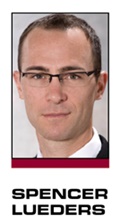Standing along a small climb rising from the famous Monte Carlo harbor in Monaco, my wife and I watched Lance Armstrong and 198 other professional cyclists rip by us with a grace that belied the sheer power and effort being applied during the prologue of the 2009 Tour de France. We were there to witness the greatest cyclist in history along the roads of France, something I regret having missed during Armstrong’s seven Tour victories from 1999-2005. It was surreal, majestic and inspiring.
Now those Tour victories — victories that fueled the biggest surge in U.S. cycling we’ve ever seen — are in jeopardy by the U.S. Anti-Doping Agency, and Armstrong’s recent decision to stop fighting what he and others call a “witch hunt” likely cements the pro- and anti-Armstrong camps in place forever.
USADA, led by CEO Travis Tygart, says it is only doing what the organization is charged to do: fight doping and weed out the cheats. Clearly, that is what drug-testing programs are designed to do, and examples of this are sports section headlines on a routine basis. This summer, San Francisco Giants All-Star MVP Melky Cabrera and Oakland Athletics pitcher and former Cy Young Award winner Bartolo Colon were each banned 50 games for testing positive for high levels of testosterone. NASCAR driver A.J. Allmendinger was indefinitely suspended from the sport for testing positive for amphetamines.
The Armstrong case is a more difficult one because it is largely based on testimony and circumstantial evidence, not actual test results. Parry and deflection are woven throughout the Armstrong case, and there appears to be more evidence that may surface over the coming months and years.
But at this point, with Armstrong’s last Tour de France victory more than seven years ago, does it really matter?
To the hardliners, Armstrong haters and certain media outlets, it is a triumph more than a decade in the making that sends a chilling message to the professional peloton that, “We will get you, no matter how long it takes.”
To the Livestrong stalwarts and those who have been
 |
Lance Armstrong’s seven Tour de France titles may be wiped away, but nothing could take away the hope he and his foundation have given to cancer survivors everywhere.
Photo by: GETTY IMAGES (2)
|
inspired by Armstrong to ride a bike, fight harder or find hope when hope wasn’t to be found, it is just noise. Noise that doesn’t take away the real feelings of joy and excitement they had watching him come back from cancer to win again and again. It doesn’t take away the hope that filled them lying in a hospital bed, reading Armstrong’s book “It’s Not About the Bike,” with a chemo drip in their arm. Or the love of cycling they didn’t have until they followed him on TV in July. Dismayed, perhaps. But the hope was real. Hope can’t be cheated.
That’s not to say that USADA and other anti-doping agencies shouldn’t be working harder than ever to fulfill their mission. Indeed, they must develop more testing that USADA insists the public wants and deserves to ensure clean sport. But the public also wants to see something epic, something amazing, something legendary. Ask Tiger Woods or Usain Bolt. Professional athletes are in the business of chasing greatness. Some may even say it is worth it, that despite the risk of being banned for 50 games or two years or indefinitely, the fame and fortune — the greatness — can overshadow the risks.
Take a recent example from the business world. Samsung, the world’s largest smartphone maker with 2011 revenue of $145 billion and 2012 second-quarter revenue of $17.98 billion from its mobile division alone, recently lost a patent infringement case brought by Apple. Samsung was caught pushing the limits of the rules in order to achieve its goals and massive financial success. Certainly, the Apple win is a setback for Samsung, but its “rules be damned” activities likely left it in a better position in the market. Samsung’s customers probably don’t really care about the verdict; they just like the product. And shareholders will be happy if Samsung keeps making money like it has been.
One could easily draw a parallel to sports and the Armstrong case in particular. Armstrong’s worth is estimated to be $125 million, his foundation has raised $500 million in the fight against cancer, and he is the most recognizable cyclist in history. Armstrong has changed the conversations about cancer and cycling in ways that will affect generations to come. Perhaps the public doesn’t really care about the USADA charges and whether Armstrong is listed as a Tour winner or not. And shareholders in the fight against cancer, from the 100 employees at the Lance Armstrong Foundation to the 28 million cancer survivors, will be happy if he continues his work leading the fight they care so deeply about.
Perhaps Armstrong broke the rules of his sport. Perhaps not. I am certain of this: His legacy is secure as one of the most tireless and effective cancer advocates in the world. And probably the world’s greatest cyclist, still.
Spencer Lueders (spencer@competitioncounsel.com) is an intellectual property and sports law attorney in Charlotte. Follow him on Twitter @spencerlueders.






